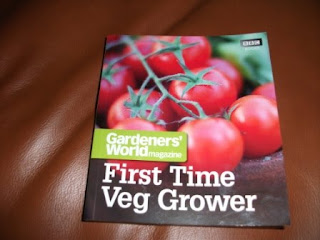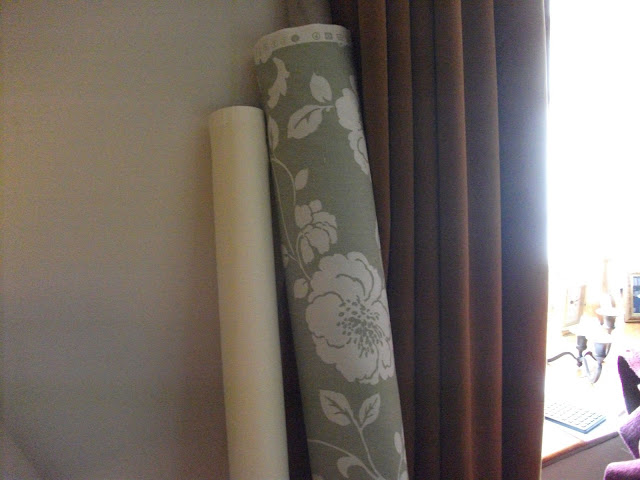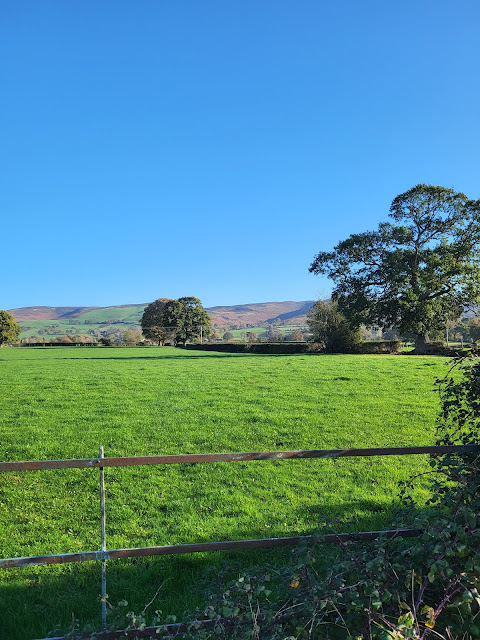More gardening books - yes!
Last week another parcel arrived in my postbox with two books for review: First Time Veg Grower by Martyn Cox and Pests and Diseases by David Hurrion. They are both BBC books under the banner of Gardeners' World magazine.
There could be nothing better for a garden book addict like me than new gardening books. I probably wouldn't buy either of these because I am not a first time veg grower and I take a fairly relaxed attitude to pests and diseases, but that doesn't mean I don't set right down to reading them. They have sat by my bed for a week or so as I have worked my through what to think about before you start growing vegetables and how to cope with ants and codling moth. I have to admit that ants and codling moths haven't been too riveting but I now know all sorts of things that I didn't know before.
I am not sure whether my attitude to pests and diseases can fairly be called relaxed or whether I am just lazy. I try to grow organically so there are various remedies which I wouldn't use and I tend to take the view that if some crops are munched a bit I can generally spare some. That doesn't mean I am immune to attacks of fury when a line of lettuce disappears overnight though.
This may make me not the best person to look at a book dedicated to pests and diseases. Maybe you need a real enthusiast! This is a useful little book though, small enough to have in your pocket but comprehensive enough to cover all the most common problems you might come across. It is not evangelical about either organic or chemical methods, providing details of both approaches, and does put quite a lot of stress on growing plants in the best way so as to make them less prone to attack, particularly from disease. As an organic gardener I would like a book which takes an even more holistic approach perhaps than this one does. But still this is a detailed, useful little book, worth having to refer to when you find your plants looking holey or sad.
There could be nothing better for a garden book addict like me than new gardening books. I probably wouldn't buy either of these because I am not a first time veg grower and I take a fairly relaxed attitude to pests and diseases, but that doesn't mean I don't set right down to reading them. They have sat by my bed for a week or so as I have worked my through what to think about before you start growing vegetables and how to cope with ants and codling moth. I have to admit that ants and codling moths haven't been too riveting but I now know all sorts of things that I didn't know before.
I suppose I thought a book on growing veg would feel very much like a reference book, something like The Vegetable Garden Displayed or the RHS book on growing vegetables, all rotation plans and sections on double digging. But this book is very much a narrative. It whizzes along, holding your hand through thinking about how much space and time you have, how to sow seeds and how to get to know your soil. It helps you choose your tools and consider whether you are going to go for pots, raised beds or go all the way and get yourself an allotment. The tone is calm and cheerful, encouraging without being gung ho. You just have the sense that the writer knows what he is talking about, isn't pushing his own agenda or hitting you around the head with his own passions, but is simply confident that you can do whatever you like just as soon as you have worked out what you want to do and how it will fit into your life. Somehow as you read that easy confidence rubs off on you. It all seems quite manageable. Some books blind the new grower with science, some give you so little practical information that you wouldn't know how to start. This one seems to me to get it spot on. It's like having an experienced and enthusiastic gardening friend who lets you pick his brains without making you feel stupid for asking.
I particularly like the section on fool proof veg. The book sets out sixteen vegetables which are straightforward for a beginner to grow. For each one it tells you where to grow it, when to start, how to sow the seeds and grow them on, tells you what can go wrong and how to prevent it if you can, and finally suggests some varieties. Simple, easy to find your way around, and full of the kind of information which makes the difference between success and failure, such as letting your onion crop dry out in a light place to prevent them from sprouting. I didn't know that the first year I grew onions and stored them in my cool dark pantry where they went soft and sprouted in no time.
So I like this book a lot. It is small enough to carry around with you but thorough enough to cover composting and mulching and how to grow potatoes in a bag. I will certainly pass it on to one of my newly gardening children. In fact I think it is so good, I might have to buy another copy.
I am not sure whether my attitude to pests and diseases can fairly be called relaxed or whether I am just lazy. I try to grow organically so there are various remedies which I wouldn't use and I tend to take the view that if some crops are munched a bit I can generally spare some. That doesn't mean I am immune to attacks of fury when a line of lettuce disappears overnight though.
This may make me not the best person to look at a book dedicated to pests and diseases. Maybe you need a real enthusiast! This is a useful little book though, small enough to have in your pocket but comprehensive enough to cover all the most common problems you might come across. It is not evangelical about either organic or chemical methods, providing details of both approaches, and does put quite a lot of stress on growing plants in the best way so as to make them less prone to attack, particularly from disease. As an organic gardener I would like a book which takes an even more holistic approach perhaps than this one does. But still this is a detailed, useful little book, worth having to refer to when you find your plants looking holey or sad.





I've only just begun to explore the bookstore shelves for books on vegetable gardens. The Great Dane is busy with those raised beds, and I'm anxious to plant in them. I think I'll use the library until I find a book or two that suit me.
ReplyDeleteI could probably use the 'pests and diseases' one. I have two probs; slugs and white fly. The slugs are easy enough to deal with, but the white fly seem to be immune from everything I've tried.
ReplyDeleteOh well....
I know what you mean about pests. I have stopped growing brassicas altogether because I cannot cope with the cabbage white butterflies and the caterpillars - I know I could spray but I don't like the thought of that either.
ReplyDeleteMy review of the first book's due on Monday. Still going through the pest one.
ReplyDeleteI think the BBC have got it spot on (with one notable exception) with this series of books. I have several of the others already :)
I think I know someone who would love the First Time Veg Grower - thanks, you might just have sorted a birthday present out!
ReplyDeleteEnjoyed your post Elizabeth - will not buy either for myself but certainly the 'First Time Veg Grower' sounds as if it would make a great little gift. From what you say it seems as if the author has put himself in the shoes of a novice veg grower.
ReplyDeleteThere are quite a few books on gardening and growing vegetables on our shelves already, although we hardly grow any veg now. It is always useful to know about pests and diseases, unfortunately, I mainly get cross and swear about them, which doesn't help a lot.
ReplyDeleteGeothermal Heat Pump ! Never makes pollution because it works by the heat of earth !
ReplyDeleteOooh, how do you get to review gardening books? How lovely. The only thing anyone's ever asked me to review was some complete dog food (hmmm, wonder whether the name has something to do with that? Mental note - must change name to something gardeningy and perhaps take a few more pictures of vegetables. I love gardening books. Possibly more than actual gardening, if I'm honest - the allotment in my head is so much more satisfying in so many ways than the one at the other end of my garden).
ReplyDelete